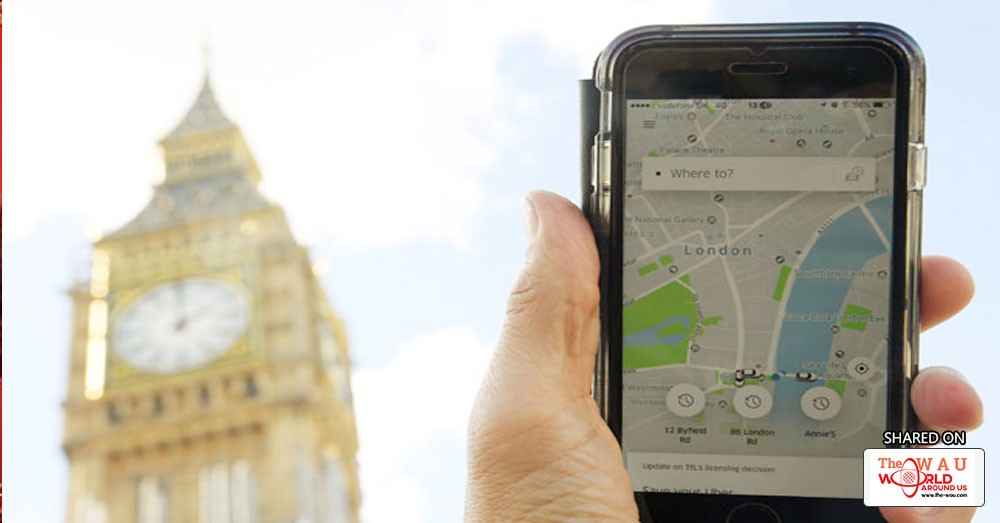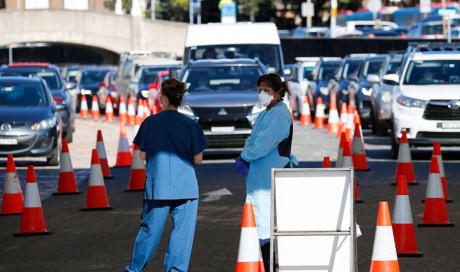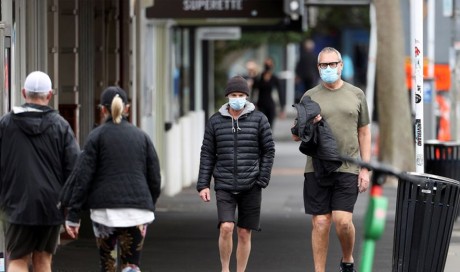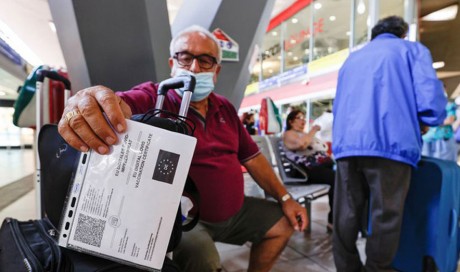You are a passenger hailing a ride in a city both historic and hip, a guardian of custom and a hub of change. You might not realize it, but your taxi choice - go with tradition or punch an app? - puts you right in the middle of a debate about the future of work, technology and who regulates whom.
In London, the ride-sharing company Uber, employing tens of thousands of gig-working immigrants in humming Japanese hybrids, finds itself in a high-stakes brawl with the long-established cabbie business, whose iconic black taxis are operated by old-school drivers who've spent years committing to memory every street in the city.
Last month, the London transit authority dropped a bombshell. It was not going to renew Uber's 5-year-old license, it said, because the Silicon Valley corporation was not a "fit and proper" company to run a taxi service. The authorities revealed few specifics but said Uber had failed to report serious criminal offenses allegedly committed by its drivers. They also said Uber was not conducting rigorous background and medical checks on its operators.
Commuters were stunned.
More than 3.5 million people here have downloaded the app, making it one of the biggest ride-hailing markets in the world. There are 40,000 Uber drivers cruising around London. They are allowed to keep driving for now, pending an appeal the company filed Friday. Almost 900,000 people have signed an online petition against the ban.
The Uber fight in London not only pits new ways against old, it also reveals modern-day ruptures in the labor market - such as, what is the value of a worker who knows things versus a worker who knows how to look up things online?
There is also this: In multicultural London, Uber drivers are far more likely to be named Ali or Muhammad, while black-cab drivers tend to be an Ollie or a Brian. And the fight is playing out in a city where much of the white working class finds itself challenged by the forces of globalism, mass immigration and galloping technological change, all hot-button topics since Britain voted to leave the European Union.
After they were alerted that their license to operate would be yanked, Uber's libertarian-minded executives accused London of going Luddite - hostile to cutting-edge technology. The company claimed that officials had "caved in to a small number of people who want to restrict consumer choice."
The accusations didn't go down well. London's mayor, Sadiq Khan, a child of immigrants and a rising star in the Labour Party, said that tech companies such as Uber were indeed welcome but needed "to play by the rules."
Many cities around the world have seen tussles among taxi and Uber drivers. But the clash in London is stark because it so clearly pits a bespoke experience - the boxy black cab, straight out of central casting, the East London driver as tour guide with volumes of opinions - against techie upstarts.
A new arrival from Libya or Bangladesh with a work visa can start driving for Uber within weeks of landing in London, assisted by GPS navigation systems, their cellphone screens guiding them with Google Maps and the Israeli-designed Waze.
Meanwhile, the London cabbie often spends two or three or four years studying for "the Knowledge," a mind-maze battery of exams that involve memorizing more than 25,000 streets, mews and passageways and 20,000 landmarks.
Uber is relatively cheap - and popular, especially among the young. Black cabs can be pricey, and to hail one, you sometimes have to look away from your phone and wave your arm.
An Uber to Heathrow or Gatwick airports might cost $50. A black cab can charge twice that, a round-trip ride costing as much as a discount plane ticket to Spain.
After the Uber ban was announced, cabbie John McDonnell felt that his protests against the ride-hail app had finally paid off.
"They weren't going to push us around," said the 51-year-old driver, who has attended numerous anti-Uber demonstrations, standing on the hood of his car and waving a Union Jack flag.
To him, Transport for London's decision meant that London's cabbies had won - and shoved a Silicon Valley giant back on its heels.
"We've been here for 350 years, and this American company comes in and decides to take over? That's not on," McDonnell said, referring to the days when London taxis were horse-drawn carriages.
He thinks that taxi drivers should be professionals, as he is, and that Britain's immigration policy should favor migrants with special knowledge. "We will have the skilled people. We don't want the unskilled," he said.
The ease with which Uber drivers can get up and running irks many cabbies.
"I'm like a doctor, and they are like a cleaner compared to us," said Tony Bensalem, 58, a black-cab driver who was driving along the Mall, a tree-lined road that links Buckingham Palace to Trafalgar Square. "Someone comes from Italy, France, wherever, they have no job, and then they have Uber. I think it's wrong, 100 percent."
Harsha Prabath Kumara, a 33-year-old Uber driver originally from Sri Lanka, said he doesn't understand the allegation that Uber's service is unsafe. "You can see the driver's name, the driver's license details, you can see the driver's rating and feedback others have given, you can see what kind of person he is. If you don't like it, you can reject it straight away," he said.
Dara Khosrowshahi, Uber's new chief executive, issued a conciliatory statement from San Francisco admitting the company "got things wrong." He would fight the London ban, he said, "with the knowledge that we must also change."
Khosrowshahi flew to London to meet with regulators face to face. Jo Bertram, Uber's top U.K. executive, resigned. Uber, it seemed, was trying to turn a page after a scandal-ridden year that exposed a toxic corporate culture and growth-at-all-costs approach.
It's unclear whether the road ahead for Uber in London is long or short. But many of the drivers interviewed for this article - both Uber and black cab - think the ride-hailing service will remain in some capacity.
"Uber is not going anywhere," said Clifford Weeks, 58, a jovial black-cab driver wearing a jean jacket and black cap who drove from Trafalgar Square to the Royal Festival Hall without pausing to look at a Google map or a device.
"That doesn't matter," he said of the Knowledge exams. "People just want to get from A to B." And Uber, he acknowledged, is generally cheap.
Weeks recalled the day his own daughter said she was an Uber rider. "One day, she said, 'Dad, I use an Uber cab.' You can imagine that should be heresy in my house, but people love it."
One day, out of curiosity, he watched his daughter and her friend use the app and was floored to see a car roll up 50 seconds after they had punched in the postal code.
"Am I sour? No, not really. It's just how it goes," he said, shrugging. "If they say Uber will no longer be on the streets on London, I'd be very surprised. I'd eat my hat."
If Uber is forced out of London - as it has been in other cities around the world - many expect something else will fill the vacuum.
"This is technology. This is the future," said Ovidiu Vilcea, a 29-year-old Uber driver from Romania, nodding at the smartphone affixed to his windshield.
He drove past London's Natural History Museum, famous for its dinosaur collection. Looking in his rearview mirror, he said: "If it's not Uber, it's going to be another company soon."
Share This Post















